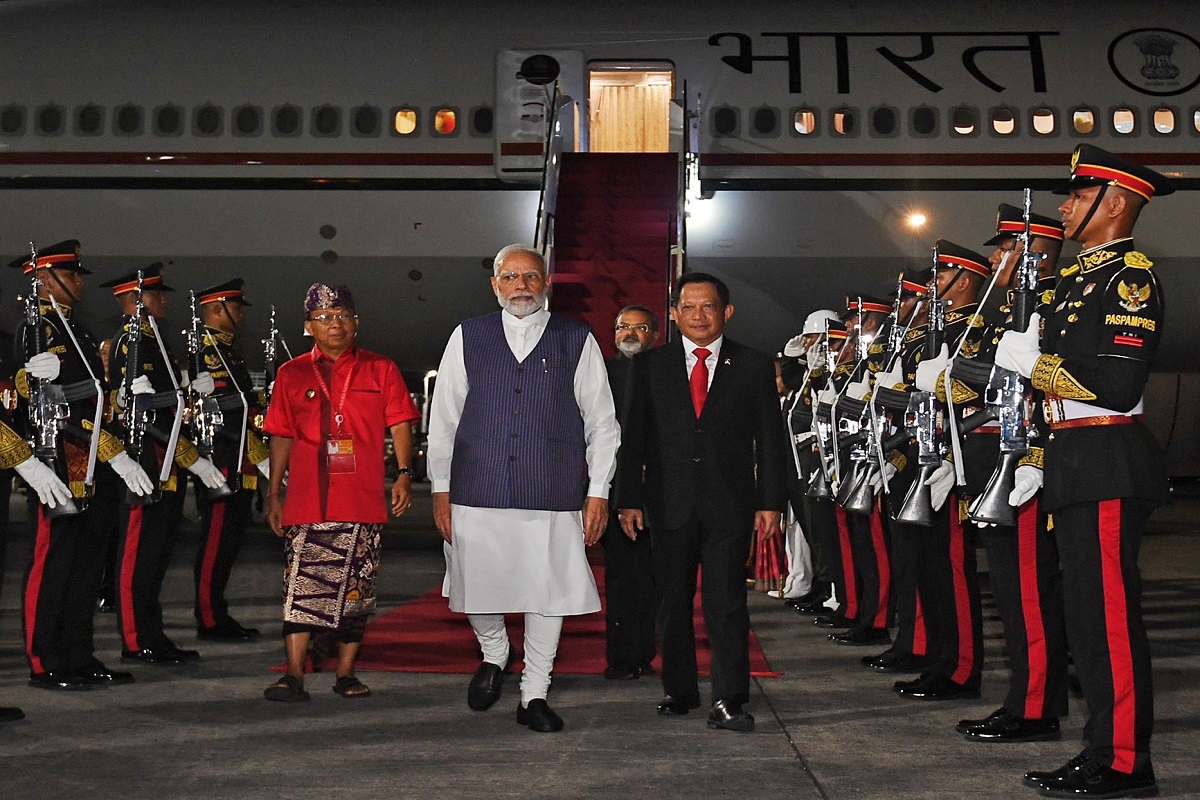Prime Minister Narendra Modi on Tuesday renewed his call for an immediate ceasefire in Ukraine and returning to the path of diplomacy, observing that climate change, Covid pandemic, Russia-Ukraine conflict and the global problems associated with it have caused havoc in the world.
”I have repeatedly said that we have to find a way to return to the path of ceasefire and diplomacy in Ukraine. Over the past century, the Second World War wreaked havoc in the world. After that, the leaders of that time made a serious effort to take the path of peace. Now it’s our turn. The onus of creating a new world order for the post-Covid period lies on our shoulders,” he said, while addressing the G-20 Summit in Bali.
Advertisement
PM Modi said that the need of the hour was to show concrete and collective resolve to ensure peace, harmony and security in the world. ”I am confident that next year when the G20 meets in the holy land of Buddha and Gandhi, we will all agree to convey a strong message of peace to the world,” he said. India will host the next G-20 Summit in September next year.
The PM said that the world was today faced with a crisis of essentials and the challenge for the poor citizens of every country was more severe. ”Everyday life was already a struggle for them. They do not have the financial capacity to deal with the double whammy. Due to the double whammy, they lack the financial capacity to handle it,” he added.
The PM also asked the global leaders to not hesitate to acknowledge that multilateral institutions such as the UN have been unsuccessful on issues confronting the poor. ”We have all failed to make suitable reforms in them (multilateral institutions). Therefore, today the world has greater expectations from the G-20, and the relevance of our group has become more significant,” he added.
Modi explained to the world community that India’s energy security was important for global growth also, as it was the world’s fastest-growing economy. ”We must not promote any restrictions on the supply of energy and stability in the energy market should be ensured, he added.
India, he said, was committed to clean energy and the environment. By 2030, half of India’s electricity would be generated from renewable sources. Time-bound and affordable finance and a sustainable supply of technology to developing countries were essential for the inclusive energy transition.
The PM also utilised the opportunity to explain to the summit leaders how India ensured the food security of its 1.3 billion people during the pandemic. At the same time, food grains were also supplied to many countries in need.
The current shortage of fertilizers in terms of food security was also a huge crisis, he pointed out, adding today’s fertilizer shortage was tomorrow’s food crisis, for which the world would not have a solution.
”We should build mutual agreement to maintain the supply chain of both manure and food grains stable and assured. In India, for sustainable food security, we are promoting natural farming and re-popularising nutritious and traditional food grains like millet. Millets can also solve global malnutrition and hunger. We all must celebrate the International Year of Millets with great enthusiasm next year,” he said.









